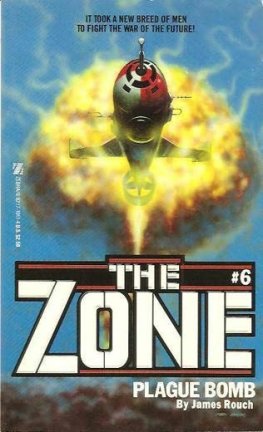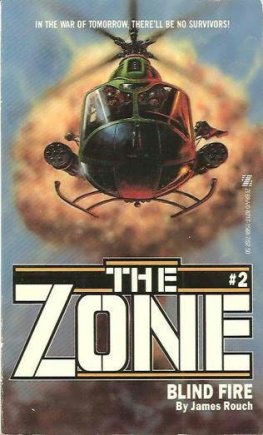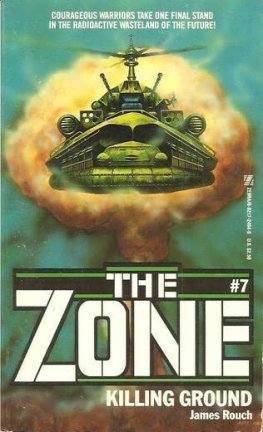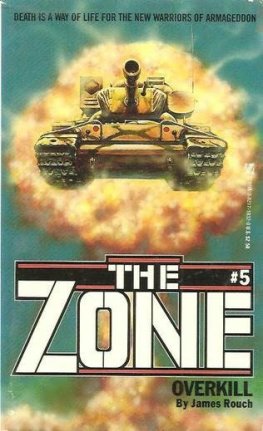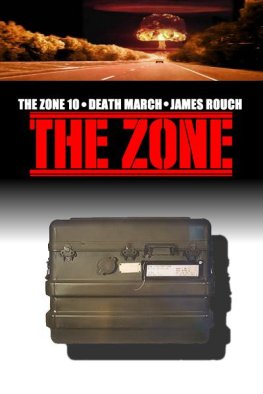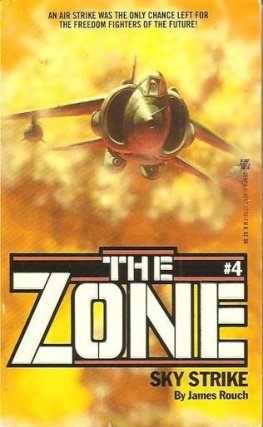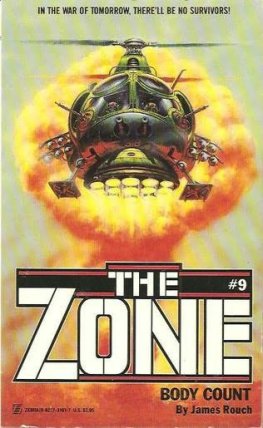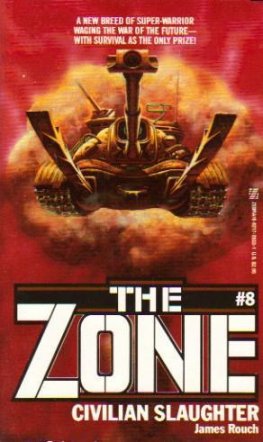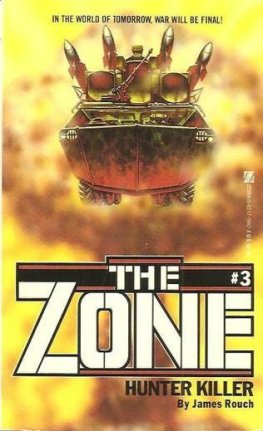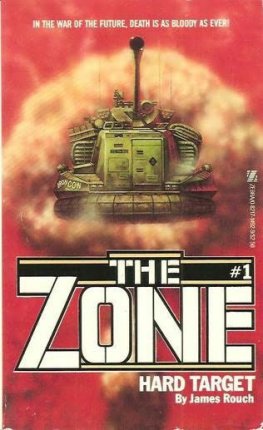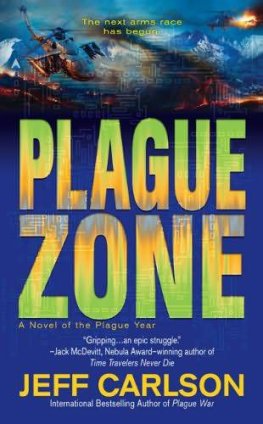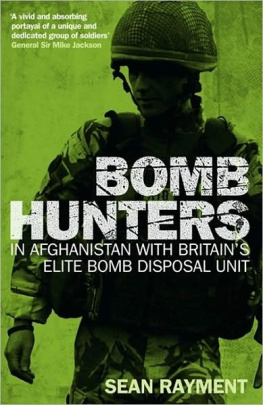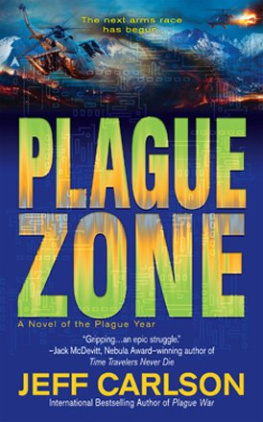James Rouch
PLAGUE BOMB


Cover illustration:
Whether or not gas will be employed in future wars is a matter of conjecture, but the effect is so deadly to the unprotected that we can never afford to neglect the question.
General of the Armies John J. Pershing, 1919
Intelligence evaluation. CIA for president. copies secretary of state for defense joint chiefs of NATO staff MI6
AFTER SEVERAL RECENT SOVIET PROPAGANDA REVERSES IT IS LIKELY THE KGB WILL BE SEEKING MEANS BY WHICH TO EMBARRASS THE NATO POWERS AND SHOW THE USSR AND THE WARSAW PACT IN A GOOD LIGHT THROUGH FAVORABLE WORLD WIDE PUBLICITY IN THE WEEKS BEFORE THE CRUCIAL CONFERENCE OF NEUTRAL NATIONS.
WHILE IT MUST BE THOUGHT UNLIKELY THAT THE KGB WILL TOTALLY FABRICATE AN INCIDENT, ESPECIALLY AFTER THE EXPOSURE AND FAILURE OF THEIR ATTEMPT TO SUBVERT THE NORWEGIAN PARLIAMENTS VOTE ON NEUTRALITY, IT IS PROBABLE THAT THEY WILL USE SLEEPERS AND AGENTS OF INFLUENCE TO INITIATE SOME DRAMATIC ACT, POSSIBLE BY A WESTERN PACIFIST OR DISARMAMENT GROUP.
IT IS LIKELY THAT DEPARTMENT A. OF THE KGBS FIRST CHIEF DIRECTORATE WILL BE RESPONSIBLE FOR ANY SUCH OPERATION, SO MAKING THE CHOICE OF THE NEW HEAD OF THAT DEPARTMENT OF ACUTE INTEREST TO WESTERN INTELLIGENCE AGENCIES.
A profile and evaluation of the officer appointed will be circulated as soon as his identification has been confirmed.
There were less than a hundred names on the death warrant. It would be an easy day for the Lubyankas execution squad.
Col. Yuri Rozenkov took up his pen, and not bothering to first remove the accumulated fluff from its nib, started to scrawl and gouge his signature, then stopped. It would be a good opportunity to try his new toy. From a drawer he took the ink pad and the as yet unstained stamp. He crushed its mirror image carved head into the oozing dark blue cushion, then pounded it onto the coarse grained paper at the foot of the list of names.
That was another eighty-nine files that could be closed, but by the end of the day at least that number of new ones would be opened, as the prison took in its quota. Most likely there would be more walking in than carried out, and the problems of severe overcrowding would become that much worse.
Without even glancing at the double column of single spaced names, Rozenkov moved the sheet to his out-tray. His eyes strayed to the telephone as he groped, without looking, for the next list. It did not ring, and he forced his attention back to the paperwork.
On this the close-typed names were broken into sections of roughly equal length by sub-headings. These were the prisoners who retained some vestige of their former health and sanity after the KGBs expert interrogators had finished their work. Among them would be a few who had never even been to the underground rooms where that was done. Some were unfortunates who had been sent by mistake, who had been intended for less rigorous establishments, others had arrived in demented state, driven insane by fear of what they knew lay ahead even before they had crossed the threshold. There was not the time to sort and redirect them.
Those on the list were unique among the prisons inmates, they were among the tiny minority who left it alive, but they were unlikely to survive long. The chemical and medical experimental establishments had seemingly insatiable demands for human guinea pigs. Some were going to the Institute for Blood Research here in Moscow, on Moznayskoye road, others to the biological weapons research establishment at Sverdlovsk.
Again he looked at the telephone, still sentient on the edge of his desk. Had he over-played his hand? He knew his ambition was recognized and had worked hard to give it the image of a virtue. A promotion was due to him and with the arrest of General Khramoveski a path had opened that could, that must, lead to a plum position.
The colonel tensed and half reached for it as the instrument gave a brief half-hearted jingle and no more. Forgetting the new stamp he slashed his signature across the paper and slapped it on top of the others. A knock on the door was hesitant, light, almost feeble.
Enter.
A senior sergeant took a half pace into the room, holding a strip of tele-printer readout before him like a talisman. From the Department of Administration, Comrade Colonel.
Well? Rozenkov knew the effect his sharp tone would have on the NCO. He had cultivated its menace during the years he had worked with the interrogation units. There were times when it had been successful where acid and electric shock treatment and even drugs had failed. It worked now, and the sergeants hand shook visibly.
They the Department of they wish to know if we can take another three hundred prisoners today. There has been a riot at Psychiatric Hospital number seven, on Institutskii Lane
Impossible, tell them Rozenkov paused. Of course it was impossible, physically impossible to cram any more bodies into the prison, many were dying of disease before they could be questioned, and the guards themselves were beginning to succumb to the buildings foul atmosphere. The stench was even starting to permeate to this office. They must be fools in administration, they knew the position They knew! Of course they knew; he was being tested.
Tell them we will be ready in one hour. Make the reply immediately, then contact the chief officer and senior warder from each floor. I want them here in thirty, no, ten minutes. Each of them to have a list of fifty names. Contact all our experimental establishments, tell them we can supply all their needs, all of them. Then alert the commander of the execution squad, tell him to have his men draw extra ammunition and stand by. Arrange transport for upwards of two hundred bodies. Well, get to it man, now!
The sergeant disappeared, and the closing of the door wafted the stink of human waste about the room. Rozenkov didnt notice it, and wouldnt as it became stronger, as it would, as it always did when a clear-out was initiated. Fear would spread through the Lubyanka like a raging contagion and sheer terror would in some cases do the executioners work for them. When the killing began, and much of it would be done in the cells where all could hear, there would be a number of prisoners whose hearts would, give out, who would die of fear. It might be as many as four or five of the inmates. Another eight or more would self-inflict fatal injuries on themselves, despite the constant searches geared to deprive them of any weapon that might serve that or any other lethal purpose.
And at least one guard, possibly two, would be killed or maimed by the frenzied resistance as tiring in their work, they became careless, let drop their concentration for even a moment.
Colonel Rozenkov did not care. He had set the slaughter in motion and with only deft guiding touches it would roll through the building until the floors ran with blood and the killers became too exhausted to kill.
It was several years since hed actually participated in such an event, not since hed led the first assault platoon in the retaking of the huge Prasnya transit prison in Moscows Kradnaya district. That had been a blood bath. Some of his heavily armed shock troops had been literally torn apart by the rioting inmates, had gone down under an avalanche of fists and feet to be ripped open by nails and teeth.
That day he had killed twenty or more of the prisoners himself, perhaps twice that number, hed not kept a count. He could recall standing off from a group cowering in a corner of a dimly lit cell and emptying his pistol into them, then closing with a bayonet fitted AK74 to whittle the huddling would-be escapers down to more manageable numbers, using his skills at inflicting painful death to peel away the outer layers of the hysterical press until with his bare hands he had throttled its last surviving member.

